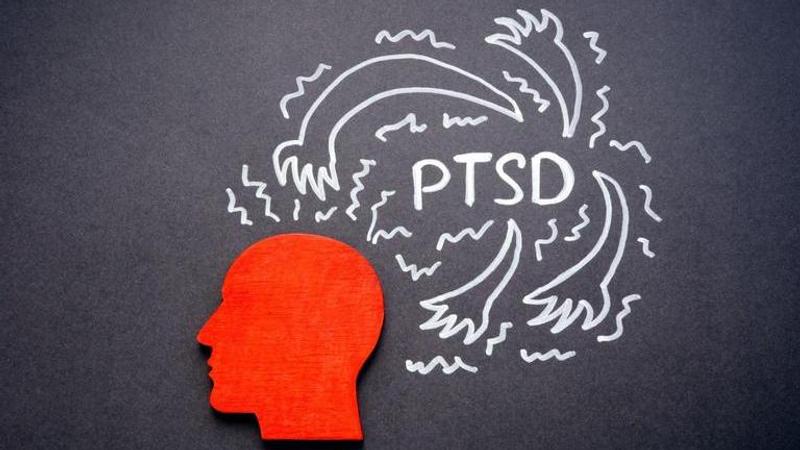Published 19:25 IST, September 1st 2023
Bipolar Disorder: 10 Lifestyle Changes to Manage Mania, Depression Symptoms
Discover expert-recommended lifestyle changes to navigate bipolar disorder effectively. Balance routines, sleep, nutrition, and more for improved well-being.

In light of the recent revelation that renowned actress Mahira Khan is battling Bipolar Disorder, medical experts have come forward to shed light on the importance of lifestyle changes for managing the symptoms of this challenging condition. We had the privilege to converse with two prominent medical professionals in the field – Clinical Psychologist Dr. Shilpi Saraswat from Sakra World Hospital and Psychiatrist Dr. Nikunj S Gokani – to gain insights into the typical symptoms of bipolar disorder and discover the recommended lifestyle adjustments for individuals grappling with this condition.
2 things you need to know
- Bipolar disorder involves mood swings, from mania to depression.
- Lifestyle changes can effectively manage bipolar symptoms and improve well-being.
What is Bipolar Disorder?
Bipolar disorder, classified as a mood disorder, is a condition characterised by alternating episodes of elevated mood, exuberance, heightened energy levels, grandiose thoughts, and risky behaviour, as well as, periods of prolonged low mood, which entail feelings of sadness, diminished energy, and a sense of pessimism. These fluctuations in mood can have a substantial impact on an individual's behaviour and overall well-being.
Understanding the Typical Symptoms of Bipolar Disorder
"Exaggerated self-esteem, less need for sleep, increased talking, flight of ideas, and speeded-up activity are some of the hallmark symptoms of the manic phase," explained Dr. Shilpi Saraswat, Clinical Psychologist at Sakra World Hospital. She emphasised that individuals may exhibit boundless energy, impulsive behaviour, and poor judgement during this phase. She also pointed out that some individuals might experience psychotic symptoms like delusions and hallucinations, making their experience even more complex.
(Individuals may exhibit boundless energy, impulsive behaviour, and poor judgement | Image: iStock)
"Hypomania, a milder form of mania, is characterised by increased energy and happiness, but it can escalate into full-blown mania or severe depression," she noted. Furthermore, She highlighted the challenges of mixed states, where both manic and depressive symptoms coexist, causing immense distress to individuals.
"Depression symptoms include a profound loss of interest, weight fluctuations, sleep disturbances, apathy, and feelings of worthlessness," Doctor added. She explained that individuals might struggle with decision-making, and concentration, and even experience physical complaints during depressive episodes.
Recommended Coping Strategies for Mania and Depression
"In the face of mania or depression, seeking professional help from psychiatrists and mental health experts is crucial," advised Dr. Saraswat. She stressed the significance of a comprehensive treatment plan involving medication and psychosocial interventions such as family therapy, psychoeducation, and cognitive behaviour therapy (CBT).
10 Essential Lifestyle Changes for Bipolar Disorder Management
Dr. Nikunj S Gokani, a prominent psychiatrist, offered valuable insights into lifestyle changes that can significantly impact bipolar disorder management. These changes encompass various aspects of daily life and can play a pivotal role in stabilising mood fluctuations:
Routine
Establishing a consistent daily routine offers structure and predictability, which aids in mood stabilisation.
Sleep Hygiene
Maintaining regular sleep patterns and prioritising adequate sleep can regulate mood swings.
Healthy Diet
Consuming a balanced, nutrient-rich diet positively influences mood and energy levels.
Physical Activity
Engaging in regular exercise contributes to symptom alleviation, promoting overall well-being.
Stress Management
Practising stress-reduction techniques like mindfulness, meditation, and deep breathing helps manage triggers.
Limit Substance Use
Avoiding alcohol and recreational drugs is crucial, as they can worsen mood swings and interact with medications.
Medication Adherence
Consistently taking prescribed medications, as guided by healthcare providers, is vital for symptom management.
Social Support
Cultivating a strong support network consisting of friends, family, and professionals offers essential emotional assistance.
Mood Monitoring
Tracking mood changes and recognizing early warning signs aids in timely intervention.
Therapeutic Activities
Engaging in creative outlets, hobbies, and activities that yield a sense of accomplishment can boost self-esteem and mood.
The insights provided by these experts underline the multifaceted nature of bipolar disorder and the critical role lifestyle changes play in managing its challenges. By adopting these recommended strategies, individuals can enhance their overall well-being and effectively navigate the complexities of bipolar disorder.
Updated 19:25 IST, September 1st 2023




